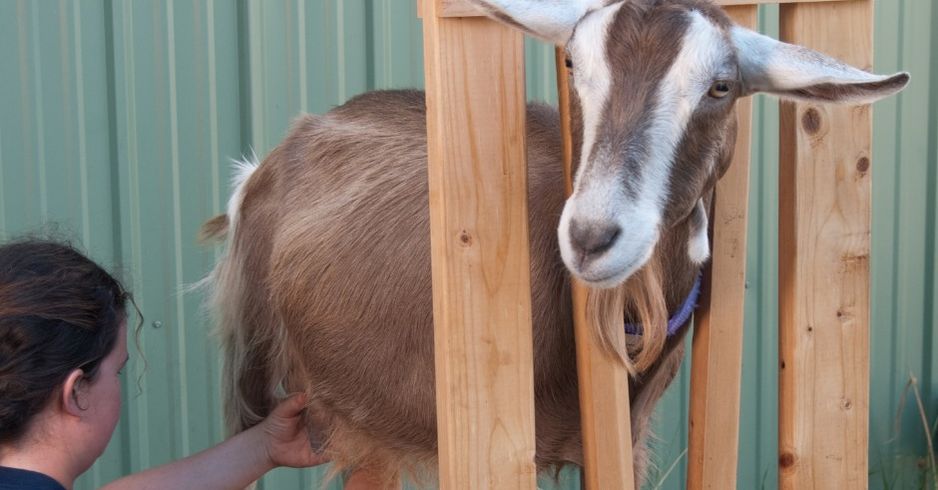Goats are more than barnyard background noise. They’re smart, social, emotional—and surprisingly dramatic. If you’ve ever spent time with goats, you’ve probably witnessed squabbles, headbutts, or standoffs that would make a reality TV producer proud. And unlike reality TV, the drama here actually serves a purpose.
But what’s behind the behavior?
“They’re like toddlers with horns—and just as opinionated.”
Here’s a closer look at the quirks, habits, and personalities that make goats some of the most entertaining—and complex—animals you’ll meet on the farm.
1. 🐐 Yes, Goats Have a Social Hierarchy (and It’s Fierce)
Like many herd animals, goats live by a clear pecking order. “Queen goats” or herd leaders often emerge based on age, strength, or sheer assertiveness. New goats may have to “earn” their place through headbutts and posturing, and the adjustment period can be spicy.
Some farmers even separate especially dominant goats during feeding to keep the peace. In other words, barnyard mean girls exist—and they’re just as good at guarding the hay pile as any clique guards a cafeteria table. And just when you think the barnyard politics are settled, someone new will challenge the crown.
🧠 Teachability Tie-In: Great for homeschool or animal science lessons on animal behavior and social systems in herding species.
2. 🐐 Goats Can Recognize—and Remember—Faces
Studies show goats can distinguish human facial expressions and remember individual people. They know who feeds them, who they like, and who annoyed them last week—and yes, they will hold a grudge, like remembering you were the one who blocked them from the grain bucket.
In a 2018 study from Queen Mary University of London, researchers found goats not only remember faces but also prefer interacting with smiling humans over neutral ones. Translation: be nice, or they’ll give you the side-eye for the rest of your visit.
3. 🐐 They Get Bored—and They’ll Let You Know
Goats are naturally curious and need mental stimulation. Without enough enrichment, they may escape pens, chew everything in sight, or start chaos just to keep themselves entertained.
Think of them as the friend who texts you at 11 p.m. saying “I’m bored”—only instead of asking you to hang out, they’re on top of your tractor. Give them nothing to do and they’ll invent hobbies—most of them involving destruction. If goats had phones, they’d be gossiping with your neighbor’s goats just to stir the pot.
Give them climbing structures, food puzzles, and a steady stream of human attention, and you’ll have happy goats instead of escape artists.
🧠 Educational Tie-In: Opens conversations about animal welfare and the importance of environmental enrichment.
4. 🐐 Goat Fights Aren’t Just for Show (But Sometimes They Are)
When two goats go head-to-head, it’s often a challenge for dominance—or just play. Some breeds are more confrontational; others are laid-back.
Watch for body language: tail position, stance, and eye contact can all hint at whether a headbutt is serious or just for the drama. Like kids roughhousing, not all goat tussles are hostile—but some are absolutely just showing off for the crowd. Some bouts end in seconds; others last long enough to make you wish you’d brought popcorn.
5. 🐐 Individual Personalities Are Very Real
Goats can be bold, shy, bossy, sweet, stubborn—or all of the above. Farmers often compare them to dogs in how they seek attention and form bonds with people.
Some goats “adopt” visitors instantly, shadowing them around the pasture. Others hang back, clearly deciding whether you make their favorites list. And when they decide you don’t? Let’s just say you won’t be getting a Christmas card from them.
“Every goat has a backstory,” one farmer says. “Some are natural leaders, some are clowns, and some are just quietly wise.”
6. 🐐 What Goat Drama Teaches Us
Understanding goat behavior isn’t just entertaining—it helps kids (and adults) connect more deeply with animals. It shows the parallels between animal communities and human ones—social structure, emotions, and personalities that sometimes clash.
By observing goats with curiosity and respect, visitors often walk away with more empathy, sharper observation skills, and the knowledge that barnyard politics can rival anything you’ve seen on TV.
Where to See the Drama for Yourself
These are working animals with their own priorities, and watching them on their turf is half the fun. Delve partners with farms across Texas where you can see the social maneuvering, playful jabs, and occasional standoffs up close.
🕯️
– A veteran-led North Texas farm experience blending creative crafting with time spent among the goats.🐐
– Perfect for families, homeschool groups, and kids.🌱
– Ideal for adults and older teens interested in hands-on learning.







